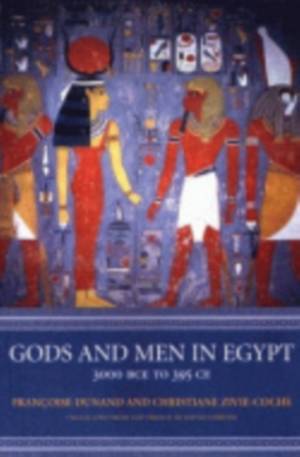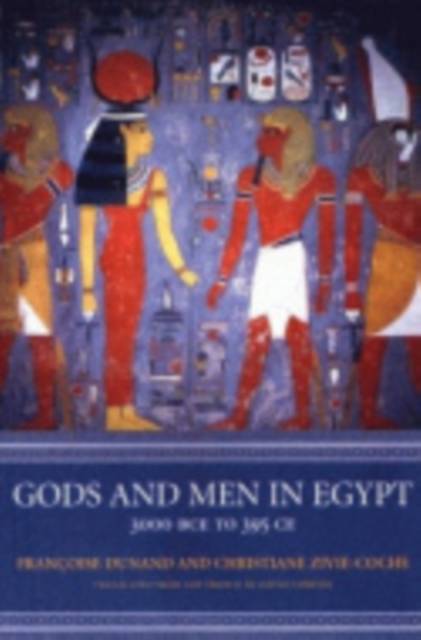
- Retrait gratuit dans votre magasin Club
- 7.000.000 titres dans notre catalogue
- Payer en toute sécurité
- Toujours un magasin près de chez vous
- Retrait gratuit dans votre magasin Club
- 7.000.0000 titres dans notre catalogue
- Payer en toute sécurité
- Toujours un magasin près de chez vous
Gods and Men in Egypt
3000 Bce to 395 CE
Françoise Dunand, Christiane Zivie-CocheDescription
In their wide-ranging interpretation of the religion of ancient Egypt, Françoise Dunand and Christiane Zivie-Coche explore how, over a period of roughly 3500 years, the Egyptians conceptualized their relations with the gods. Drawing on the insights of anthropology, the authors discuss such topics as the identities, images, and functions of the gods; rituals and liturgies; personal forms of piety expressing humanity's need to establish a direct relation with the divine; and the afterlife, a central feature of Egyptian religion. That religion, the authors assert, was characterized by the remarkable continuity of its ritual practices and the ideas of which they were an expression.Throughout, Dunand and Zivie-Coche take advantage of the most recent archaeological discoveries and scholarship. Gods and Men in Egypt is unique in its coverage of Egyptian religious expression in the Ptolemaic and Roman periods. Written with nonspecialist readers in mind, it is largely concerned with the continuation of Egypt's traditional religion in these periods, but it also includes fascinating accounts of Judaism in Egypt and the appearance and spread of Christianity there.
Spécifications
Parties prenantes
- Auteur(s) :
- Editeur:
Contenu
- Nombre de pages :
- 400
- Langue:
- Anglais
Caractéristiques
- EAN:
- 9780801441653
- Date de parution :
- 15-06-04
- Format:
- Livre relié
- Format numérique:
- Genaaid
- Dimensions :
- 164 mm x 242 mm
- Poids :
- 816 g

Les avis
Nous publions uniquement les avis qui respectent les conditions requises. Consultez nos conditions pour les avis.






